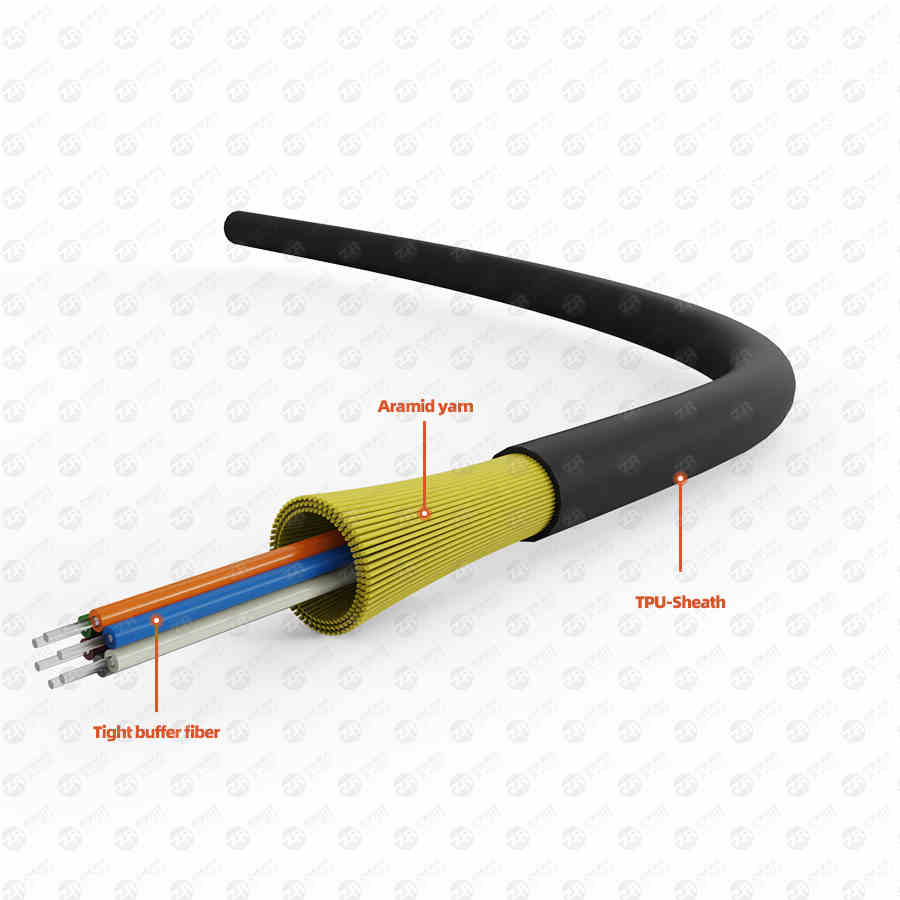Optical fiber laying scheme and selection of optical core
Optical fiber laying methods and requirements
Conventional outdoor optical fibers use a loose tube as the core container, which is the most common fiber core laying method; indoor optical fibers are often laid in tight sleeves; the cores of large-core fibers are also combined in ribbons. core.
Requirements for laying optical fibers: the bending radius of the optical fiber should be at least 15 times the outer diameter of the optical fiber, and it should be at least 20 times during the construction process; when laying out the optical fiber, the rotation of the optical fiber reel should be synchronized with the laying speed, and the speed of the optical fiber indexing is generally 15 meters per minute; when laying out the optical fiber, the slack arc should be maintained at the outlet of the optical fiber, and the buffer margin should be reserved, and it should not be too much to avoid the back buckle of the optical fiber; the reserved length of the optical fiber at both ends is 5-10 meters ; When laying optical fibers, labels should be made and the payout records should be filled in; all optical fibers should not be exposed.
Optical fiber laying scheme
The choice of optical core
The number of cores is the number of glass fibers contained in each fiber. The following small series will introduce some methods to determine the number of fiber cores.

First of all, clearly know the number of wiring points in this layer, calculate the number of switches, and whether the connections between switches are stacked or not. If the stack is stacked and the core switch is dual-machine hot standby redundancy, 6 cores are enough (2 cores each use 2 cores, and 2 cores are redundant). If you do not stack a switch to 4 cores, multiply the number of switches by 4 plus the redundancy of 4 cores, and you will be fine. (Note: Redundancy: as long as there are more than the ones used, the extra ones are called redundant master and backup: one is used, and the other is exactly the same as backup; hot backup: both are in working state at the same time; cold backup: the backup device is in standby mode.)
Experience: In the wiring room (horizontal wiring cabinet) of each floor, there is one optical fiber, generally six cores: two cores are used, two cores are reserved, and two cores are redundant; there are also eight-core optical fibers. The specification's minimum configuration is 2 cores per 48 points. Of course, 4 cores can be selected for 48 points, because 2 cores are the smallest unit of optical fiber, it is more appropriate to leave 2 more cores as backup.
The above is the method for determining the number of optical fiber cores and the optical fiber laying scheme introduced for you. You can learn it. ZR Cable focuses on the R&D and sales of optical fiber cables and other products. The product types include optical fiber jumpers, optical cables, optical fiber adapters, MPO/mtp series, etc. If you have related needs and questions, you can contact us. At ZR Cable, you can one-stop Purchase standard fiber optic products.

